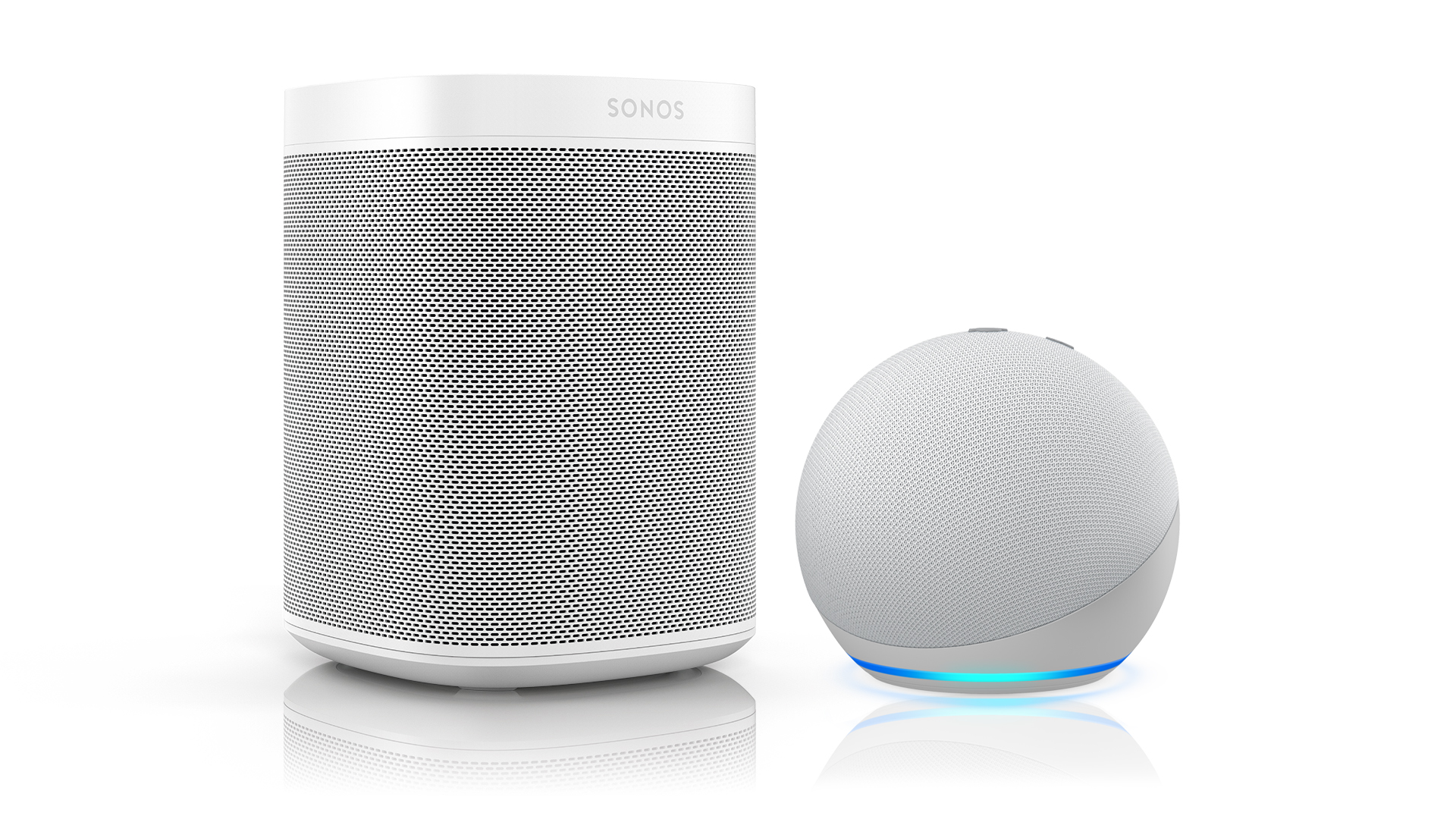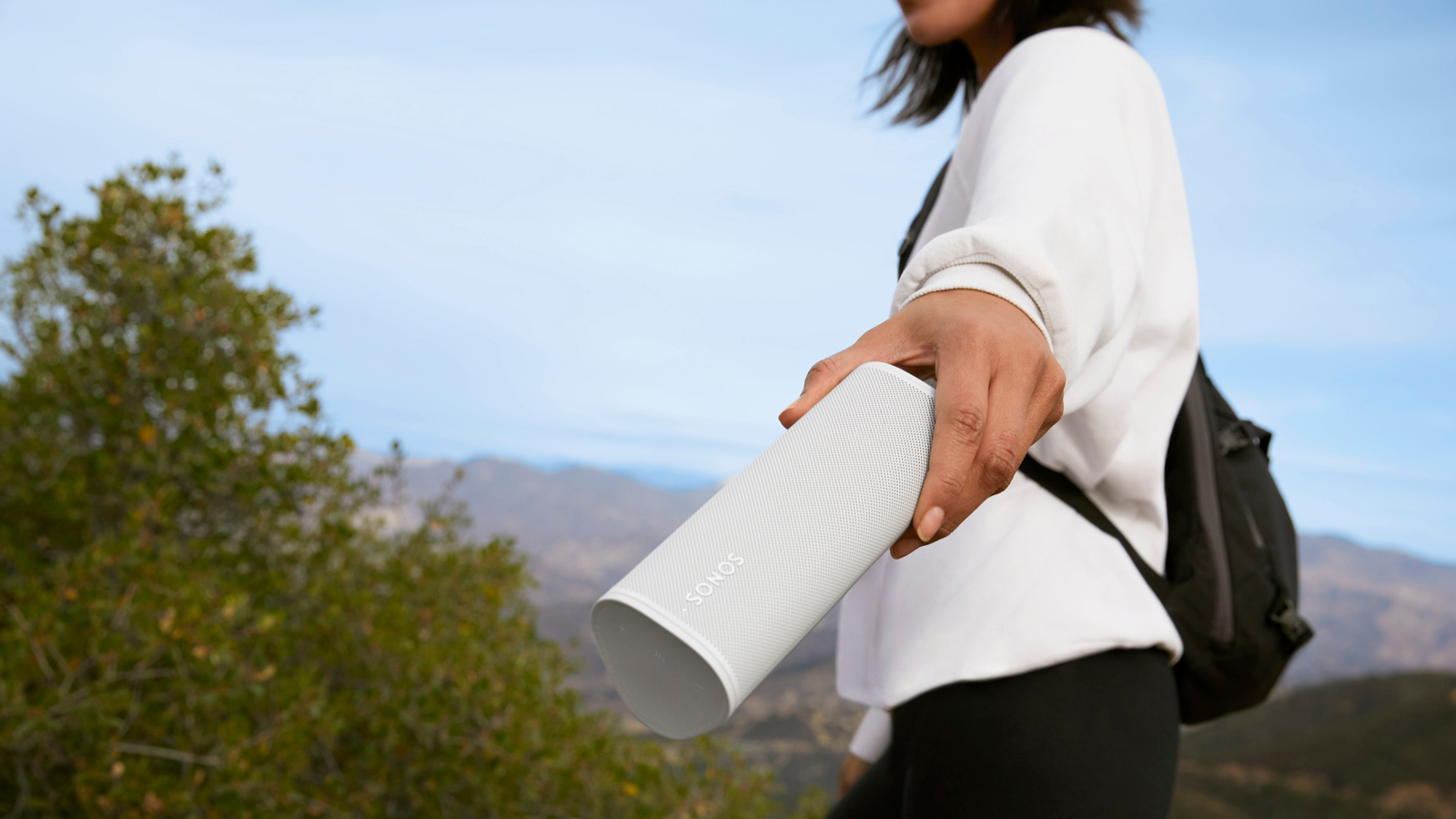Sonos CEO says a cheap Echo Dot rival is ‘exactly what we’re not going to do’
Don't make the same mistake twice

If you're a Sonos fan who's been hoping the company would launch a small and cheap wireless speaker to rival the likes of the Amazon Echo Dot (4th Gen), it looks like you're set to be disappointed.
Sonos CEO Patrick Spence recently conducted an interview with Time, in which he talked about some of the mistakes he's seen during his career, and he brought up the potential for a budget Sonos speaker… or rather, the lack of potential, we should say.
Spence told Time: “When Amazon and Google jumped in with small $25 speakers, there was a faction inside Sonos that said, ‘We can build a better $25 speaker than those companies.’ I said, ‘That’s exactly what we’re not going to do because I’ve seen this movie before.’”
The movie Spence is referring to is what he saw at RIM, maker of the BlackBerry, which is where he worked during the launch of the iPhone. When asked about the BlackBerry Storm, the company's attempt to create a touchscreen rival to the iPhone, Spence said: "In hindsight, RIM should have built the next best BlackBerry and not a response to the iPhone. With Storm, we threw away a decade of customer loyalty and a lot of our reputation for great products. That did make me paranoid about how Sonos should respond to competitive threats."
Spence points out that Sonos did respond to the launch of smart speakers, but by joining them rather then beating them: "We leveraged services they provide, such as by offering their voice assistants on a very innovative Sonos speaker that can support multiple assistants."
He also says: "we didn’t respond by competing directly with those companies and betraying everything we’re about." So he clearly feels strongly about this point, with language like that.

Opinion: Sonos is right to avoid this race to the bottom
One of the smartest things Spence says here is that he describes the Echo Dot and Google Nest Mini as being $25 speakers, even though their official price in both cases is $50. That's because no fool buys them at full price – they're on discount so often that their real price is $25-$30.
Sign up for breaking news, reviews, opinion, top tech deals, and more.
And the reason Amazon and Google sell them so cheap is that the hardware is only part of the equation for these companies. They can make money from the usage data of the smart assistants, and both companies have music streaming services you might pay for if you have their speakers. The hardware is a means to an end.
Sonos doesn't have these other ways of making money from its products – Spence made a point of mentioning privacy in the Time interview: "We’ve upped the game on privacy and speed. Instead of sending all your data to the cloud, we focused on running the Sonos voice assistant locally in your house. This is the way we respect what our customers want."
So if Sonos made a $25 speaker, it has to be profitable and sustainable at $25. That's not the case for Amazon and Google. Sonos would be entering a fight it can't really win if it tried to battle them, because if it really threatened the Dot and the Nest Mini, their price would drop even further.
You can get some of the best Bluetooth speakers for that cheap because they have less complicated tech in than these Wi-Fi connected speakers. But we've already seen, in the case of the Sonos Roam, that Sonos isn't even interested in making simple and cheap Bluetooth speakers, let alone trying to do it with Wi-Fi as well. I think it's good that it's sticking to its guns as a company, and is choosing its own direction, not being blown around in the winds of much bigger, richer and less focused companies.

Matt is TechRadar's Managing Editor for Entertainment, meaning he's in charge of persuading our team of writers and reviewers to watch the latest TV shows and movies on gorgeous TVs and listen to fantastic speakers and headphones. It's a tough task, as you can imagine. Matt has over a decade of experience in tech publishing, and previously ran the TV & audio coverage for our colleagues at T3.com, and before that he edited T3 magazine. During his career, he's also contributed to places as varied as Creative Bloq, PC Gamer, PetsRadar, MacLife, and Edge. TV and movie nerdism is his speciality, and he goes to the cinema three times a week. He's always happy to explain the virtues of Dolby Vision over a drink, but he might need to use props, like he's explaining the offside rule.